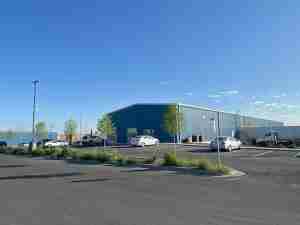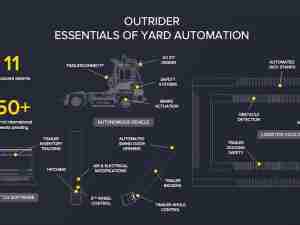Daimler AG shareholders will vote on spinning off the sprawling truck division from the Mercedes-Benz luxury-car operations in a watershed decision to boost the valuation of both companies.
The move is designed for the businesses to react faster to sector-specific trends like battery power and autonomous driving, ending more than a century of running them under one roof. Investors seek more transparency and improvements to the truck unit’s notoriously low profitability, Deka Investment GmbH fund manager Ingo Speich said ahead of Daimler’s extraordinary shareholder meeting on Friday.
“For a premium brand the margins are far too low—the cost-cutting programs haven’t worked in the truck division and only helped the cars division,” Speich said in an emailed statement. Improving results will be key as the separation “makes Daimler more vulnerable for activist attacks or takeover attempts.”
The truck spinoff is the most significant strategic step for Daimler since selling Chrysler in 2007 and a key element of Chief Executive Officer Ola Kallenius’s push to transform the luxury-car maker into a more nimble company. Daimler’s earnings and stock price started to languish late in the 13-year rein of his predecessor Dieter Zetsche, forcing Kallenius into making bold changes as fundamental shifts sweep the industry.
Daimler received a “very positive response” from its major shareholders after announcing the plan earlier this year, Kallenius said in an interview with Bloomberg Television on Friday. “They understand the logic behind this deal.”
While Mercedes’s push toward battery cars is in full swing, other technologies like hydrogen fuel cells are set to play a bigger role for trucks and the logistics sector. Kallenius has said that both units remain open for cooperation.
Daimler’s rival Traton SE abruptly replaced its two top executives this week, the second such shakeup at the truck business since its underwhelming initial public offering in 2019. The stock has failed to take off in part because of a small free float, with parent Volkswagen AG still holding about 90% of shares.
Mercedes plans to retain a 35% stake in its truck firm and hopes for the business to enter the DAX, Germany’s benchmark stock index. The trucking management will update investors on strategy next month.
“We expect the November capital markets day to be a catalyst for shares and truck and bus shares to trade well immediately on listing,” Tom Narayan, an analyst at RBC Capital Markets, said in a recent report.
Daimler traces its roots to the inventors of the automobile. In 1886, Carl Benz registered a patent for his gas-powered vehicle, while Gottlieb Daimler separately engineered a motorized carriage. Both entrepreneurs pursued development of passenger cars as well as commercial vehicles.







